Update: This article was last updated on 9th January 2026 to reflect the accuracy and up-to-date information on the page.
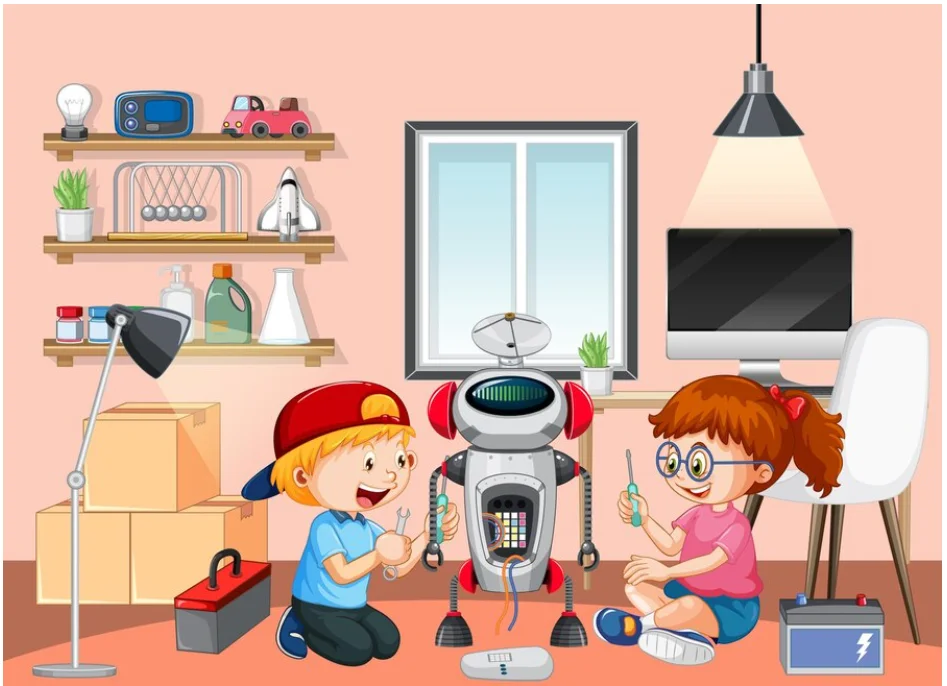
Bill Gates once said, “Robotics and other combinations will make the world pretty fantastic compared with today.” Since then, the world has changed a lot, making way for robotics in all spheres of life, even in the education system of school kids.
It is indeed a great way to push students towards Science, Technology, Engineering, and Mathematics (STEM) subjects but in an engaging manner. In an era where robots are permeating into our everyday lives at multiple levels, acquainting your kids with robotics is indeed a smart move.

Source: Zippia
With over 132,500 robotics engineers serving across different companies in the US, the significance of imparting robotics education is growing with every passing day. The sooner you introduce your children to robotics education, the closer they get to embracing STEM subjects.
Scroll down to know why your elementary school kids need to learn about robotics!
Recommended for reading: Top Career in Robotics for Kids
Here’s Why Robotics Should be Incorporated into Elementary Level Education!

1) Robotics goes exceptionally well with creativity
It takes no rocket science to understand that robotics and creativity are a deadly combination! And your kids in their elementary schools right now are brimming with creative ideas.
Robotics fuels their creative minds and makes them curious. If they learn the basics of robotics, multiple avenues open up for young minds to explore. If your kids are already into building stuff, then they will catch up with the concepts of robotics easily.
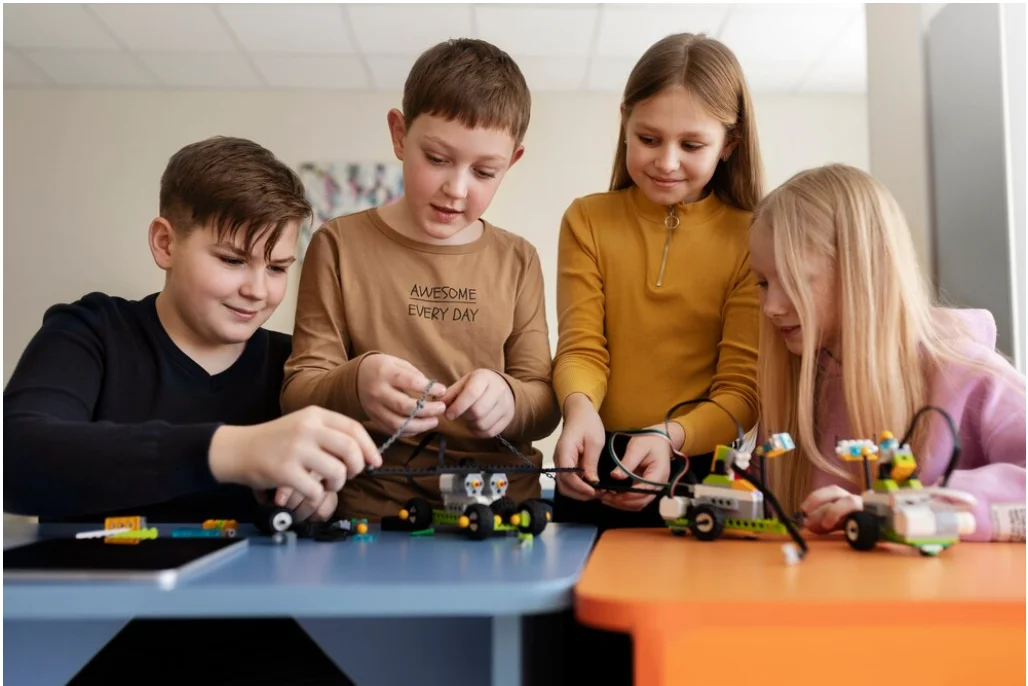
Recommended for reading: TOP ROBOTICS CONFERENCES
2) Students, irrespective of their age or gender, gain an interest in pursuing STEM subjects
Robotics is a highly viable tool that openly challenges the prevailing stereotype that STEM subjects are meant for boys.
Teaching your girl child about robotics at a young age can ignite her passion for this technical field and motivate her to embrace a robust career option in the future.
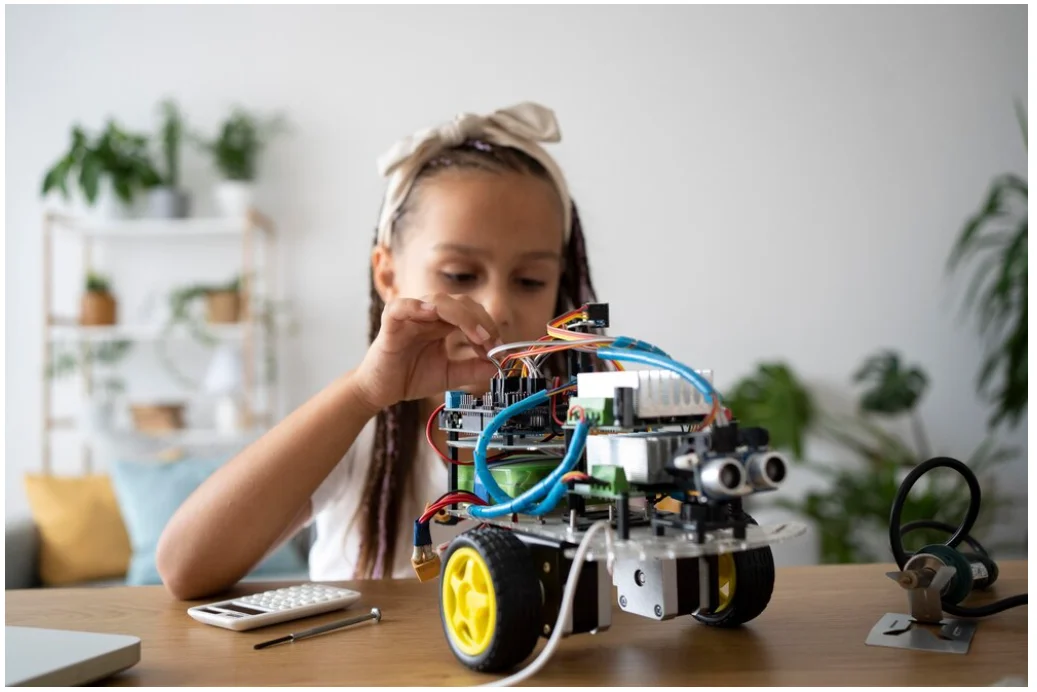
Recommended for reading: ROBOTS, ROBOTS EVERYWHERE: THE ROLE OF ROBOTICS ENGINEERS IN OUR LIVE
3) Robotics education paves the way for a promising career path
In this technologically driven time, the demand for a tech-savvy workforce is way too high. Contemporary job profiles often require an in-depth knowledge of STEM subjects. Learning about robotics from the elementary level onwards can give young children an edge over their peers.
In case you need a small sneak peek into the money matters, a robotics engineer in the USA makes $85,567 annually. They are also entitled to additional pay in the form of commissions, profits, bonuses, and so on.
Do you still need any more reasons to teach your elementary kids about robotics? Well, we will give you more reasons then!
Recommended for reading: TOP 5 ROBOTICS CLASSES FOR KIDS
4) Robotics is a tangible tool that helps elementary kids understand the abstract concepts of coding
When kids get to program and gradually control the robots that they have built, they also get to understand the basics of coding and programming. Since they have already witnessed the fun side of programming, i.e., robots, they now won’t hesitate to learn about the intricacies of programming.
Robotics can be considered a playful methodology that can help your kids learn about programming.

5) Lessons in robotics instill problem-solving skills in young minds
Programming robots is not a cakewalk. Your kids will build a robot after committing multiple mistakes. The robot will function properly only when your children learn from their mistakes and devise effective solutions.
Thus, if we look closely, robotics enhances problem-solving abilities in your kids. They will not just acknowledge mistakes but also offer the right solutions to overcome them. Robotics thus helps elementary kids tackle challenging situations with proper logic.
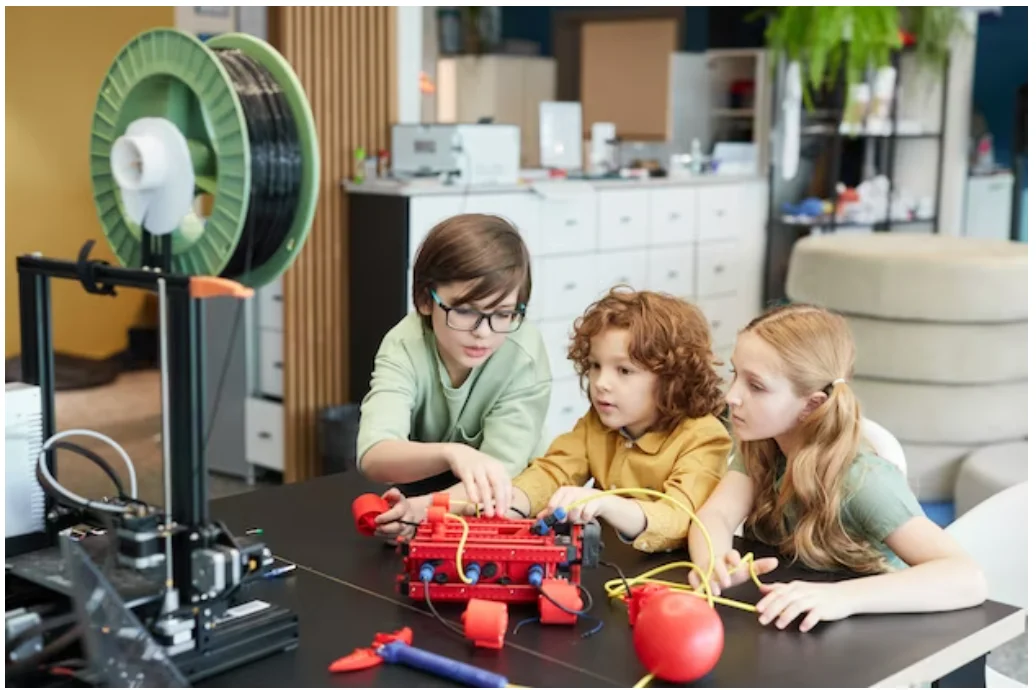
Recommended for reading: 15 ROBOTICS KITS THAT MAKE GREAT GIFTS
6) Robotics develops teamwork and collaboration skills
Working on robotics projects encourages teamwork and effective collaboration. Children learn to assign tasks, share resources, and support one another to achieve common goals. Collaboration is an integral part of robotics education, as students collaborate in small groups to design, build, and program robots. By working together, students develop essential interpersonal skills such as communication, leadership, and cooperation.
7) Robotics encourages experimentation and innovation
Robotics provides a platform for children to experiment with new ideas and concepts. It fosters a culture of innovation and allows kids to explore without fear of failure. Through trial and error, students learn to iterate on their designs, test new hypotheses, and push the boundaries of their creativity. Robotics empowers children to think critically, take risks, and embrace the process of learning through experimentation.
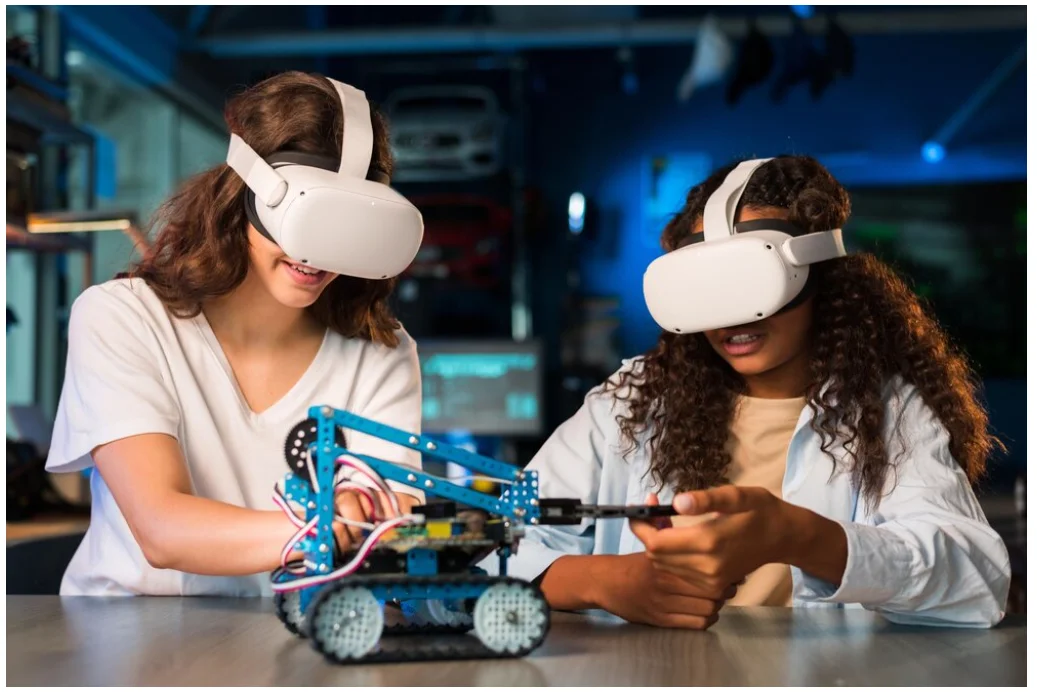
Recommended for reading: ROBOTICS FOR PRESCHOOLERS – BENEFITS AND HOW TO TEACH
8) Robotics instills resilience and perseverance
They are encountering setbacks while building and programming robots teach children to view failure as a learning opportunity. They develop resilience and perseverance as they overcome obstacles and learn from their mistakes.
Robotics education emphasizes the importance of persistence and determination, instilling in students the confidence to tackle challenges and pursue their goals with resilience.
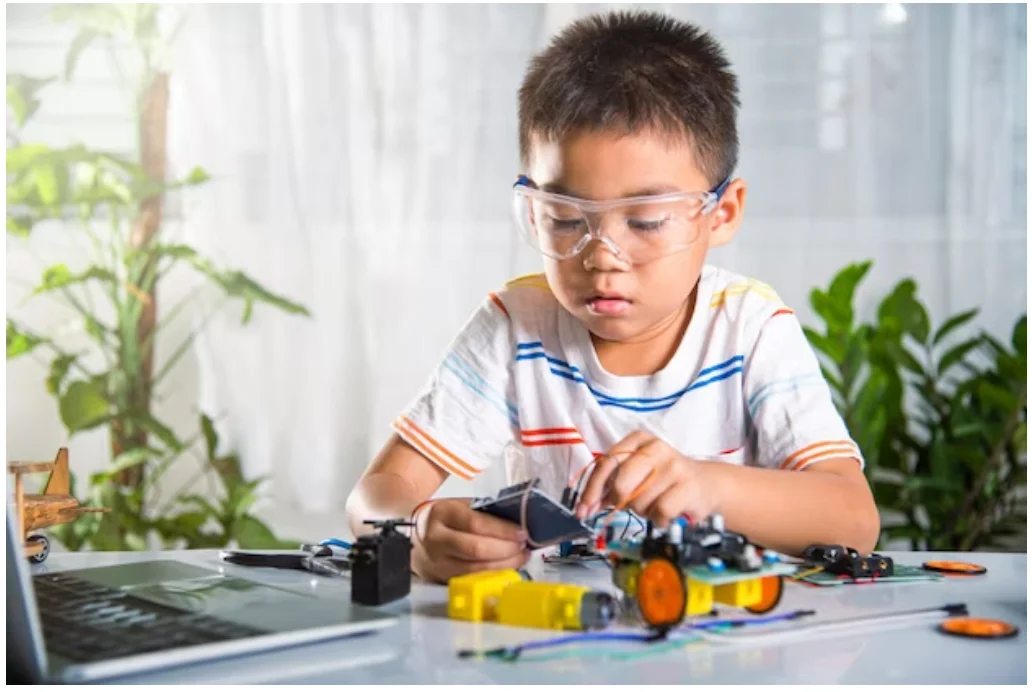
Recommended for reading: JOINING A ROBOTICS CLUB: BENEFITS AND OPPORTUNITIES
9) Robotics improves motor skills
Engaging in robotics activities requires children to manipulate small parts and components, enhancing their motor skills. Building and assembling robots involve tasks such as soldering, wiring, and assembling mechanical components, which require precise hand-eye coordination and fine motor control.
Additionally, programming robots involves typing and operating computer interfaces, improving children’s agility and coordination.
10) Robotics builds self-confidence
Completing robotics projects boosts children’s confidence and self-esteem. Participating in competitions further reinforces their belief in their abilities and encourages them to strive for success. Robotics education provides students with tangible achievements and tangible outcomes, allowing them to see the results of their hard work and dedication. As children overcome challenges and achieve success in robotics, they develop a sense of pride and confidence in their abilities to tackle complex problems and accomplish their goals.
What is the Ideal Age for Kids to Learn About Robotics?
Do you think your kids are too young to learn robotics at the elementary level? As per the research report by Tufts University, kids as young as 4 years of age can understand the fundamentals of robotics. The human brain develops rapidly up to the age of 5 years, and during this time, your kids can observe and learn tremendously.
The practical nature of this subject will fuel their mental growth. If you have been in a dilemma till now, take this as a sign to enroll your kids in a reputed robotics class soon!
Parting Thoughts
Technology is ruling the entire world. After the pandemic, technology has intertwined with our everyday lives. So, let your kids be well-versed in these modern times and help them grow as technologically efficient and experienced individuals.
Want to make your child future-ready with Robotics? Moonpreneur offers a tailor-made program. Reserve a spot in our free 60-minute workshop today and introduce them to the amazing world of robotics and innovations!

























How does robotics education in real help kids?
Robotics courses offer children the opportunity to acquire various skills, including coding, STEM concepts, communication, and problem-solving. Additionally, robotics encompasses a diverse range of disciplines, incorporating elements of electronics, computer science, and even mechanical concepts.
Robotics encompasses a variety of disciplines, merging electrical engineering, mechanical engineering, and computer science. This field incorporates embedded programming, control systems, automated decision-making, and power electronics.
Robotics courses offer children the opportunity to acquire various skills, including coding, STEM concepts, communication, and problem-solving. Additionally, robotics encompasses a diverse range of disciplines, incorporating elements of electronics, computer science, and even mechanical concepts.